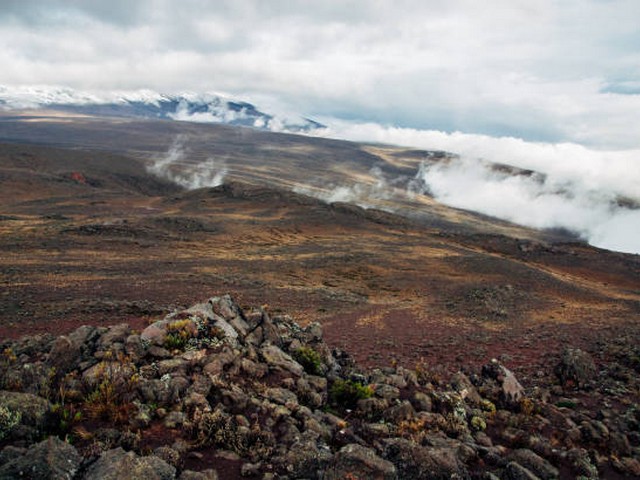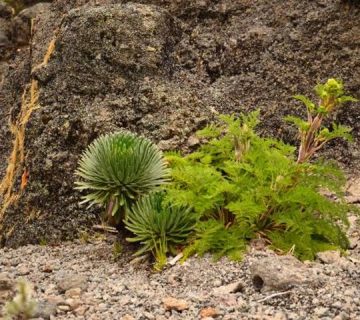How Kilimanjaro Tourism Supports Local Communities
Rising majestically above the African plains, Mount Kilimanjaro is not only a symbol of breathtaking natural beauty but also a beacon of hope and prosperity for the local communities surrounding this iconic peak. At the Kilimanjaro Centre for Trekking and Ecotourism (KCTE), we understand that the mountain’s magic is not just in its snow-capped summit but in the vibrant cultures and lives of those who call its foothills home. In this inspiring journey through words, let’s explore how Kilimanjaro tourism significantly uplifts local communities, fostering a cycle of positive growth and sustainable development.
The Lifeline of Local Economies
Employment Opportunities
One of the most direct ways in which tourism to Kilimanjaro helps local communities is through job creation. Each trek up the mountain supports a mini-economy of guides, porters, cooks, and camp staff, most of whom are residents of nearby villages. By choosing to book your Kilimanjaro climb with KCTE, you’re choosing to employ local experts who not only bring a wealth of knowledge about the mountain but also share personal stories and cultural insights that enrich your hiking experience.
Supporting Local Businesses
Beyond the mountain, your tourism dollars touch various sectors of the local economy. From lodges and restaurants to transport services and souvenir shops, small businesses thrive when tourism flourishes. As tourists soak in the local culture and scenery, their expenditures help fuel these businesses, many of which are family-owned and have been part of the community for generations.
Cultural Preservation and Exchange
Tourism opens a window to the world for the communities around Kilimanjaro, allowing them to share their rich cultural heritage with international visitors. This interaction not only preserves traditional practices and crafts but also fosters a sense of pride among local peoples. Tourists return home with authentic experiences and a deeper understanding of the Chagga, Maasai, and other ethnic groups that enrich the tapestry of Tanzanian culture.
Education and Empowerment
Scholarships and School Funding
A significant portion of revenue from tourism is reinvested into local education initiatives. Through partnerships with tour operators like KCTE and contributions from tourists, schools have been built and supplied with essential materials. Scholarships funded by tourism help ensure that education is accessible to more children, laying a foundation for a brighter, more sustainable future.
Training and Skill Development
Kilimanjaro tourism not only offers employment but also fosters professional growth. At KCTE, we are committed to providing ongoing training for our team, enhancing skills in everything from first aid and advanced climbing techniques to language and hospitality services. This training ensures high standards of safety and service while empowering individuals with valuable, transferable skills.
Environmental Stewardship
Protecting the fragile ecosystems of Kilimanjaro is a responsibility that KCTE takes seriously. We understand that sustainable tourism is crucial for the longevity of both the mountain environment and the communities that depend on it. Efforts include:
- Ecotours and Conservation: These tours educate visitors on local flora and fauna and the importance of conservation, with a portion of tour fees directly funding environmental projects.
- Waste Management Initiatives: Programs aimed at reducing, recycling, and properly disposing of waste generated by trekking activities help maintain the natural beauty of Kilimanjaro.
Community Health and Welfare
Tourism revenue helps fund local health clinics and community health initiatives, improving access to essential medical services for remote mountain communities. These facilities often serve not only locals but also tourists and staff involved in Kilimanjaro treks, ensuring a healthier future for all who live in or visit this majestic region.
FAQs: Your Journey to the Roof of Africa
Q: How can I ensure that my visit to Kilimanjaro benefits the local communities?
A: By booking your climb with a responsible tour operator like KCTE, you ensure that a significant portion of your fees supports local employment, environmental conservation, and community projects.
Q: What cultural experiences can I expect when visiting Kilimanjaro?
A: Expect to immerse yourself in local traditions, from tasting unique regional cuisine to participating in cultural performances and visiting local markets.
Q: How does KCTE contribute to environmental conservation?
A: KCTE invests in training guides and porters on sustainable practices, supports local conservation projects, and ensures all tours adhere to environmentally friendly principles.
Q: Can I visit local schools or community projects during my trip?
A: Yes, KCTE can arrange visits to community projects and schools supported by tourism, offering a firsthand look at the positive impacts of your travel.
Concluding Thoughts
Mount Kilimanjaro is more than just a hiking destination; it’s a lifeline and a source of community, culture, and conservation. Each step you take not only brings you closer to the summit but also contributes to the livelihood and development of local communities.
Join us at Kilimanjaro Centre for Trekking and Ecotourism (KCTE) for an unforgettable climb that gives back as much as it exhilarates. Together, we can continue to harness the power of tourism for the good of Kilimanjaro and its people. Let’s make your next adventure count for more!




